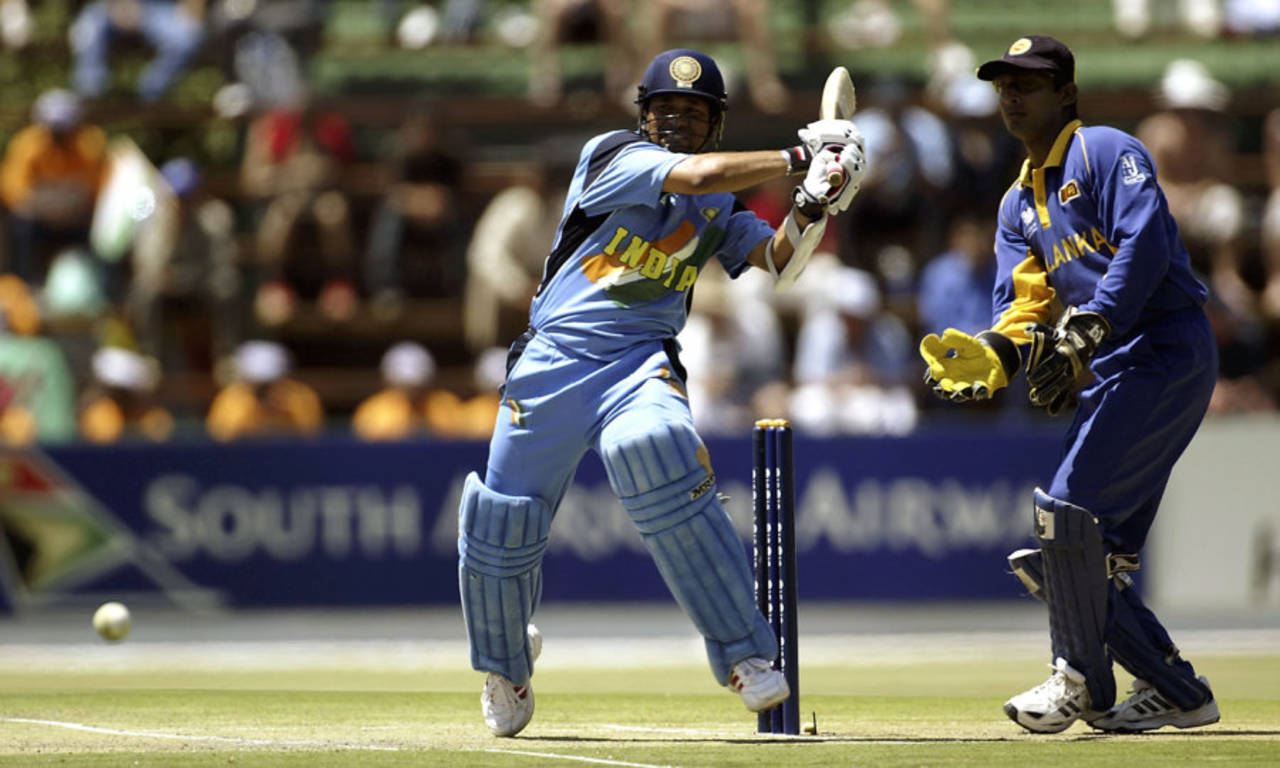Tendulkar: '1983 World Cup final was the turning point of my life'
Looking ahead to their 1000th ODI, the master looks back at India's journey, and his own, in the format
Nagraj Gollapudi
04-Feb-2022

Sachin Tendulkar has featured in a mindboggling 463 of India's 999 ODIs so far • Getty Images
Who hit the first ever six for India in men's ODIs?
Sachin Tendulkar has no ready answer. His first guess is the late Ajit Wadekar. Eventually he gets it right: Sunil Gavaskar, who hit the first six in India's first-ever ODI in 1974, at Leeds against England, a match India eventually lost by four wickets. On Sunday, India will play their 1000th ODI, becoming the first team to record that feat.
Tendulkar might not win a pub quiz, but having played 463 ODIs, a record that might probably stand forever, he seems the appropriate authority to ask to pick a shortlist of matches that made India a force to reckon with in the international game's middle-length version. In a quick chat with ESPNcricinfo on Friday, Tendulkar picked out two matches that have singularly shaped Indian cricket.
Tendulkar's top pick from before he started playing was the 1983 World Cup final where Kapil Dev's India defended 183 successfully against Clive Lloyd's West Indies to win India's first ever global title. "I also watched the World Championship of Cricket final in Australia. But 1983 World Cup final was the turning point of my life," Tendulkar said on Friday. "That motivated me a lot. Till then cricket was played for fun, but after that I played cricket with purpose."
If the 1983 triumph triggered his ambitions, Tendulkar would live out his dream of lifting the World Cup himself, 28 years later, when India beat Sri Lanka at the Wankhede Stadium. A match Tendulkar has no doubts is the most important of his playing career. "When you win a World Cup nothing matches that. The best day of my cricketing career."

Kapil Dev on the Lord's balcony after the 1983 World Cup win•PA Photos
But the 2011 final wasn't Tendulkar's second pick for a match that has shaped India's white-ball cricket. Instead, he chose a match that he felt should get a little more attention than it has so far: the final game of the league phase of the Standard Bank International tri-series in 1997, during which South Africa hosted India and Zimbabwe.
The final league game pitted India, then led by Tendulkar, and Zimbabwe. "We needed to get the target of 241 runs against Zimbabwe in 40.5 overs to make the final of that tri-series which also involved South Africa," he said. "Zimbabwe were two points ahead of us, so we needed to qualify for the final on the basis of a better net run rate. We eventually closed that game in about 38 overs (39.2). I scored a hundred (104). Zimbabwe was a much better team [then], formidable at the time, and the outfield was laden with thick grass. Hence I feel it was an important game that comes to my mind straightway."
Tendulkar, who will turn 49 this April, has the most ODI tons of any batter: 49. On February 24, it will be 12 years since he became the first male batter to record a double-century in ODIs, a feat achieved against South Africa in Gwalior. Asked what record he would want an Indian to achieve going forward, Tendulkar said it was impossible to predict such a thing.
"Records just happen," Tendulkar said. "In my wildest dreams also I did not know if I was ever going to get a double-hundred. In fact, I had had a very good season till then. There were a lot of aches and pains in my body on that morning. I was actually on the physio table at the hotel room and telling the physio that my body is so tired right now, I'm drained because every part of my body was aching and I was strapping it in my preparation. So I told him that if we win this match I am going to ask BCCI to rest me for the third ODI. If we don't win then obviously, I will play. But I hope we win today's match and we close the series.
"The moment I went out on the field, having taken a few painkillers, the game took over. Such is a power of any sport. For a second also I did not think about my injuries, and aches and pains. I was so engrossed, it was a beautiful feeling. What I am trying to say is even when I had scored the hundred, never did I think of the double hundred. I was just thinking jo hona hai hone do (whatever happens, let it). I said [to myself] I am just going to continue batting - that was the aim."
Nagraj Gollapudi is news editor at ESPNcricinfo